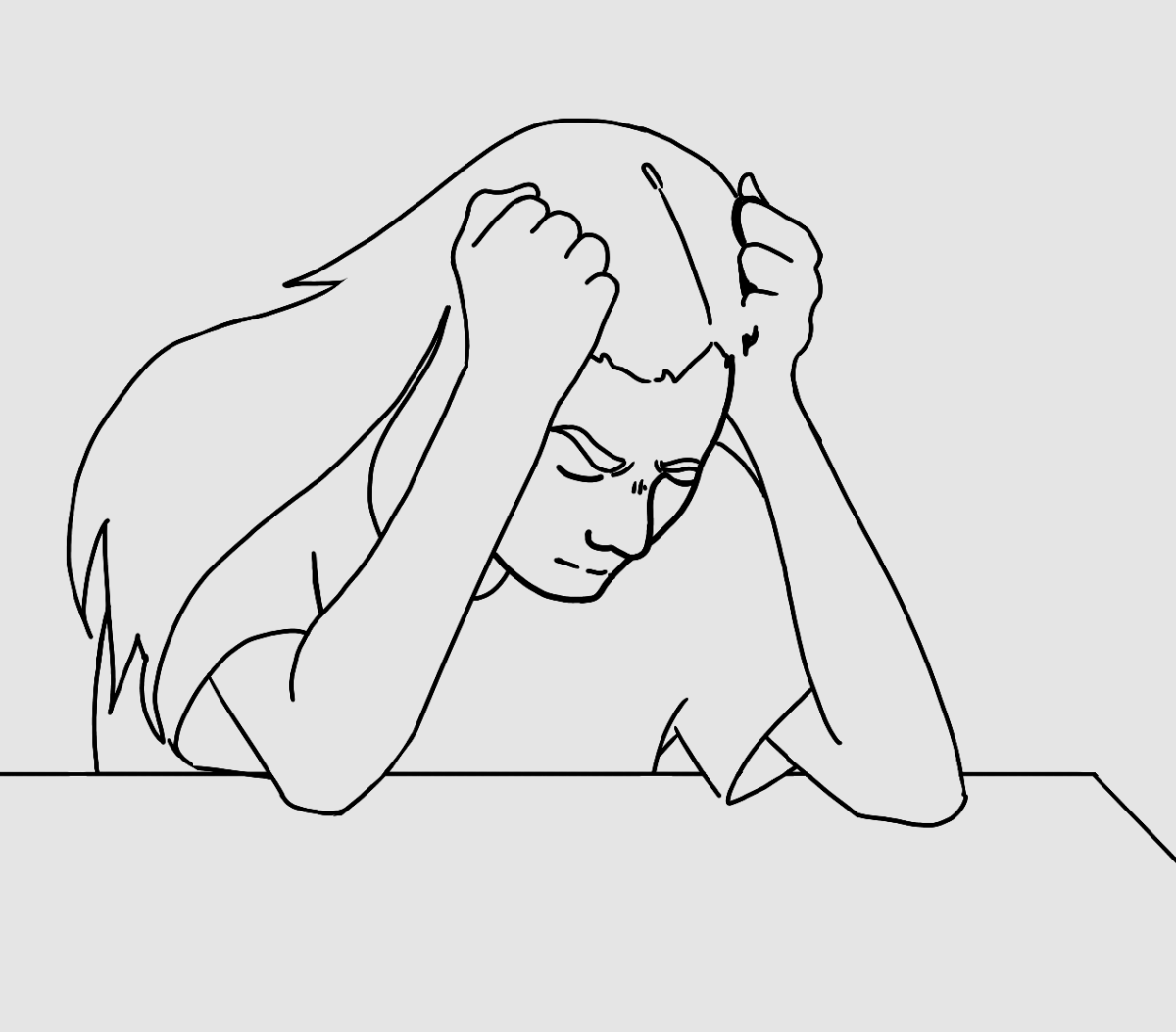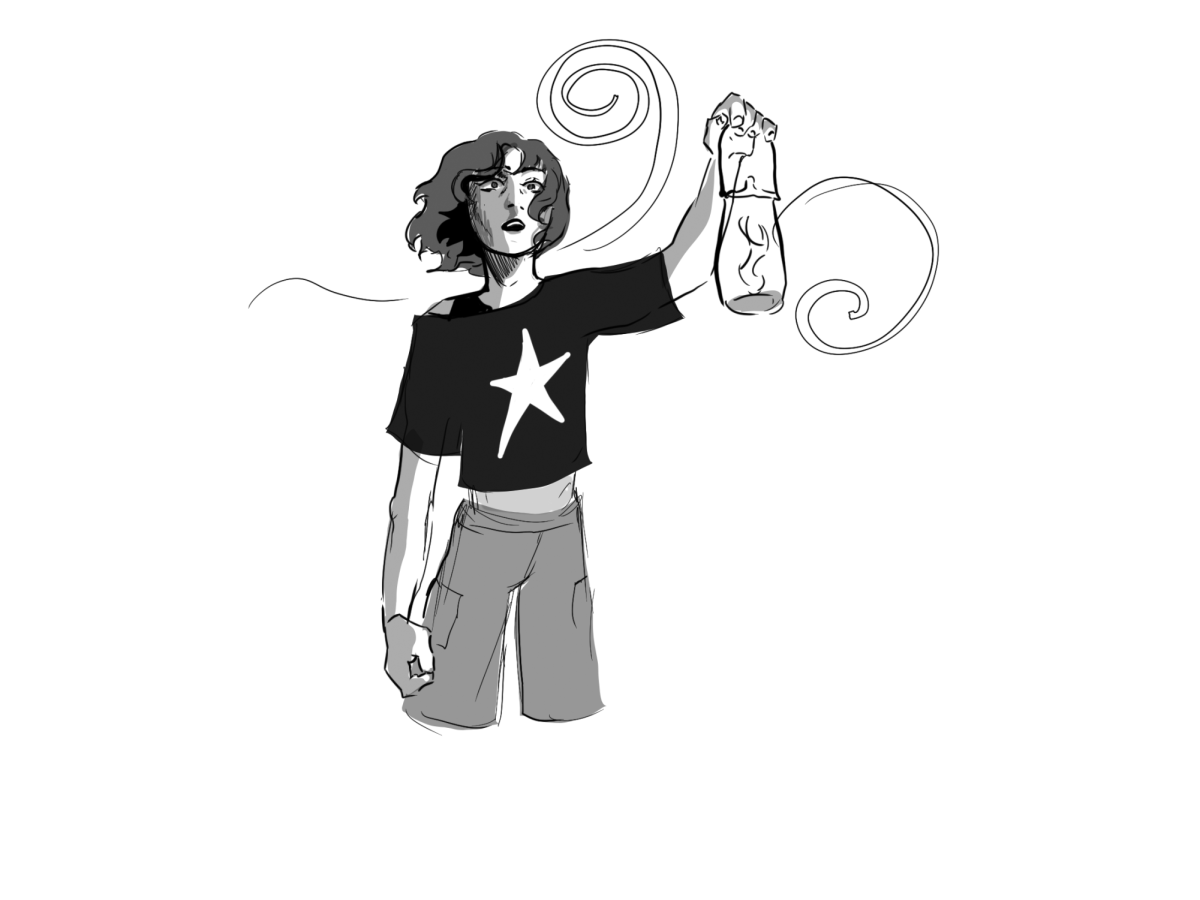High school, or in other words said to be the best times of anyone’s life. Parents explain stories of childhood friends, fun dances, and all the high school sweethearts they haven’t seen in years. These fundamental school years seem so glamorous, but there are aspects to everyday highschool life that no one seems to remember about their ‘glory years’. This part of the highschool experience seems to be missing from your parents’ stories, it’s absent from your favorite movies, no one talks about it online, in fact it seems like this core aspect of schooling has been completely buried in the rose tinted memories of graduates. The movies never talk about hidden parts of high school. It’s not too deeply avoided, but never quite remembered until the next group of students arrive at the doors.
There are many stressors in high school. Deciding where to go for college, is college even an option? Is going into the Military a better option? Should you take a gap year? And more stressors like maintaining grades and keeping up with the social aspect of high school. In the face of this stress and academic pressure, many students have felt burnt out, developing a school ‘itis’ which in turn affects their school life even further. All these and many more have contributed to the high school “itis” phenomenon that has taken many victims. Most commonly known as “senioritis”, this feeling is related to the loss of academic motivation in relation to the inevitable future of parting with childhood.
“You stop caring because you’ve got one foot out the door and you don’t really look back.” said MTHS senior Braden Ryder.
What does time do? It moves, it runs, it does anything but stay still. Students are constantly reminded of the ticking of time, school has left no time for pausing in the constant onslaught of work. These high school stressors always seemed so far away, but once time caught up, and students crossed the high school threshold, the feeling of lost time never quite leaves. High school seems so far away to the younger mind. But once entered into the gates, the feeling of running out of time never quite leaves a student alone. Whether it be about a project, assignment due date, or even the end of a friendship, time is always just out of reach. This mental and physical battle of time is at the core of the term senioritis. Movies about high school are a whole other genre of issue. They will never get it 100% correct due to the variety of experiences people have in high school. But regardless, movies where the main character saves the world, does theater, sports, and still having time for homework are very perplexing.
While the average high schooler isn’t Peter Parker, they still have a lot on their plate even if it doesn’t revolve around evil villains. “All the classes that people take, and all the running start students, the harder classes… they’re doing so much they start stressing out about it.” said junior Halleluia Alemayehu.
‘Senioritis’ also has many little causes that collectively unite themselves. But the two main mindsets behind it all are anticipation and denial. Anticipation for the future that will behold. All the achievements and goals that one might have during their high school years. As well as on the opposite side, the denial of the future that comes with all these goals. Example being to graduate college you have to become an adult first, and then go through years of more difficult schooling to graduate. When you finally do graduate, many students may feel an emptiness, those years of work are over, and one may want to deny the truth that their goals are close or already accomplished. All these milestones that seemed eons away are creeping closer and closer. All the milestones are becoming closer than they were before. “Maybe even go to a new state, or country to pursue this idea of success. That we all chase, but you don’t know if it’ll work out. As much as I know it’s a good fit, it’s tough to say ‘I want to do this,’” said senior Braden Ryder.
Who does it affect? Are all the “itis” ending grades limited to just senior year? It makes sense for seniors to feel bored or burnt out when they have essentially experienced high school in its entirety, but what about sophomores and juniors? Freshman? Are sophomores and juniors excluded from this feeling? What about freshman?
“As it is with most personal experiences, everyone is different. I’d say everyone deals with it, it just happens.” Alemayehu adds. The things they experience and realities for them could be different compared to someone else that goes to the same school. It could be “junioritis” and “sophomoritis”. “I know everyone is scared of change, no matter how big or small it is. Despite how adaptable we as humans are.” said Ryder.
Another thing that fuses these people together is the want for a solution? How can one deal with the stress of the future, assignments, personal life, and all other things that come with high school? While it may feel lonely and impossible to deal with, many other students experience the exact same feeling alongside you. “Your friends are a support. Also talking with your family, it helped me a lot talking with my mom and my dad.” Alemayehu mentions. Usually just talking it off itself could reveal that it isn’t so scary after all. Making time for homework as well as relaxing to prevent burnout is helpful as well. By ignoring the issue it could make it worse for you both mentally and physically.
‘Senioritis’, ‘junioritis’, and all the rest are the start of burnout that follows students around in high school. They have difficulty turning in assignments and could be feeling overwhelmed thinking about the years that follow. Anticipation and denial are midst of the “itis” the two things terrorizing the mind. Anticipation of the year and days to come all the new positive experiences and relationships. And denial that to reach that point, you might have to leave a little bit of the life you’ve always known.
What does one think when they think of the upcoming years? It is good to remember that all the ways high school made one feel. It is never a one person battle, there could be so many people dealing with the same things as each other and never knowing. This is why talking about it could be helpful in uniting people.
It gets better Hawks. Whatever ‘itis’ you’re suffering from, you’re not alone.
Remember to tell loved ones about the things that are bothersome. Take time to lighten the mind and strain that the brain might be feeling. Other ways are by making time for assignments and projects it can be more easy to handle. Some words of encouragement Ryder suggested for future seniors were to have “perseverance above all else” and “recognition that it’s not all over.”
Categories:
Grades being exposed to “-itis” plague
©HAWKEYE image credit: Lucas Barquin
Story continues below advertisement
Tags:
0
About the Contributors

Ruth Asheber, Hawkeye Staff
Ruth Asheber joined HSM in 2023 to get the behind the scenes view of the school’s information backbone. Her interest in journalism stemmed from her adoration for photography but it doesn’t only stop there. Since joining HSM she has grown her interest in many different fields such as writing articles and the graphics aspect of the newspaper and the website. Ruth can usually be found in one of the many different libraries or cafes either reading or studying away. Her other hobbies include many types of arts and crafts, taking pictures of literally everything, and going thrifting! She hopes to continue her education in the fields such as English, Psychology, and/or Buisness.

Lucas Barquin, News Editor
Lucas Barquin (he/him) enjoys writing, drawing, and music. Outside of HSM, he is involved in the MTHS theater program. After high school, he wants to get a degree in illustration and become an artist. In HSM, he wants to write about important topics happening in the Terrace community.






